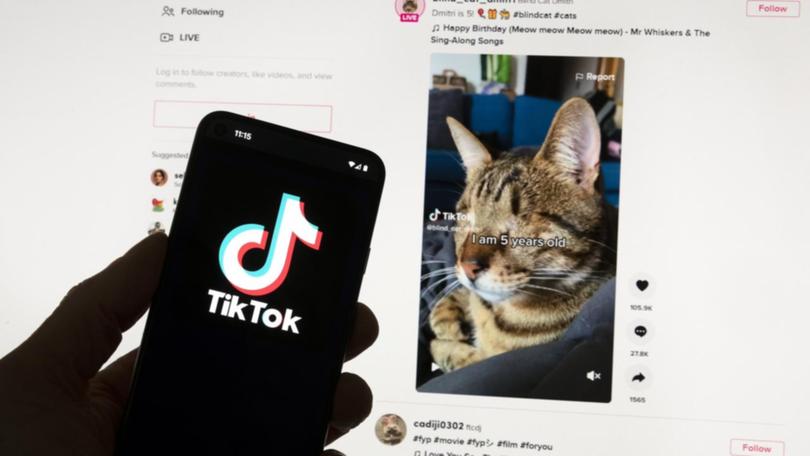TikTok warns of broader consequences if US ban allowed

The lawyer for TikTok and its Chinese parent company ByteDance has offered a warning during Supreme Court arguments over a law that would compel the sale of the short-video app or ban it in the United States - if Congress can do this to TikTok, it can come after other companies, too.
The law, which was the subject of arguments before the nine justices on Friday, sets a January 19 deadline for ByteDance to sell the popular social media platform or face a ban on national security grounds.
The companies have sought, at the very least, a delay in implementing the law, which they say violates the US Constitution’s First Amendment protection against government abridgement of free speech.
Sign up to The Nightly's newsletters.
Get the first look at the digital newspaper, curated daily stories and breaking headlines delivered to your inbox.
By continuing you agree to our Terms and Privacy Policy.Noel Francisco, representing TikTok and ByteDance, argued that Supreme Court endorsement of this law could enable statutes targeting other companies on similar grounds.
“AMC movie theatres used to be owned by a Chinese company,” Francisco told the justices.
“Under this theory, Congress could order AMC movie theatres to censor any movies that Congress doesn’t like or promote any movies that Congress wanted.”
The justices signalled through their questions during the arguments that they were inclined to uphold the law, although some expressed serious concerns about its First Amendment implications.
TikTok is a platform used by about 170 million people in the US - roughly half the country’s population.
Congress passed the measure in 2024 with overwhelming bipartisan support, as lawmakers cited the risk of the Chinese government exploiting TikTok to spy on Americans and carry out covert influence operations.
Jeffrey Fisher, the lawyer representing TikTok content creators who also have challenged the law, noted during the Supreme Court arguments that Congress with this measure was focusing on TikTok and not major Chinese online retailers including Temu.
“Would a Congress (that is) really worried about these very dramatic risks leave out an e-commerce site like Temu that has 70 million Americans using it?” Fisher said.
“It’s very curious why you just single out TikTok alone and not other companies with tens of millions of people having their own data taken, you know, in the process of engaging with those websites and equally, if not more, available to Chinese control.”
Democratic President Joe Biden signed the measure into law and his administration is defending it in this case.
The deadline for divestiture is just one day before Republican Donald Trump, who opposes the ban, takes office as Biden’s successor.
Solicitor General Elizabeth Prelogar, arguing for the Biden administration in defending the law, said it needed to take effect on January 19 to force ByteDance to act on divestiture.
“Foreign adversaries do not willingly give up their control over this mass communications channel in the United States,” Prelogar said.
“When push comes to shove, and these restrictions take effect, I think it will fundamentally change the landscape with respect to what ByteDance is willing to consider.
“And it might be just the jolt that Congress expected the company would need to actually move forward with the divestiture process.”
If the ban takes affect on January 19, Apple and Alphabet’s Google would no longer be able to offer TikTok for downloads for new users but existing users could still access the app.
The US government and TikTok agree that app would degrade and eventually become unusable over time because companies would not be able to offer supporting services.
The Supreme Court also debated whether the possibility of TikTok being used for covert influence campaigns or propaganda purposes by China justified banning it.
“There are lots of people who think CNN, Fox News, the Wall Street Journal, the New York Times are manipulating their content,” Francisco told the court.
“That is core protected speech.”
Originally published on Reuters
